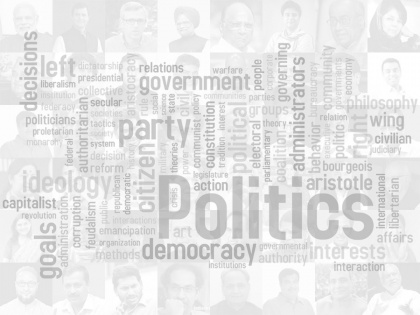Need to revisit what liberalization means for India politically, says Msh Tewari
By ANI | Published: February 18, 2020 05:07 PM2020-02-18T17:07:42+5:302020-02-19T16:20:44+5:30
Congress leader Msh Tewari on Tuesday said that there is a need to revisit what globalization and liberalization mean for the country politically and to reorient our political language.

Need to revisit what liberalization means for India politically, says Msh Tewari
Congress leader Msh Tewari on Tuesday said that there is a need to revisit what globalization and liberalization mean for the country politically and to reorient our political language.
Speaking to , Tewari said, "There are some fundamental issues, ideological in nature, which have been bedevilling Congress for a while. It's Congress which presided over the socialist dogma from 1947 to 1991. In 1991, Congress oversaw liberalization and globalization of the economy. While the economy moved from socialism to a more social equity-based model, we couldn't make that transformation politically."
"There is a need to revisit what globalization and liberalization mean for India politically and need to reorient our political language keeping in view that reality. That's a debate which is long overdue," he said.
The Congress leader said, "A consequence of Liberalization and globalization has also been that you have a more mobile younger generation. Liberalization and Globalization were also coupled with the rise of the internet which gave people access to far more information than it was available to us when we were growing up."
"Therefore you have more confident younger India which is questioning and which values self-made people. So these are social realities which we need to factor into in our political discourse," he said.
When asked about Secularism, Tewari said, "Secularism when it was engrafted into the Constitution way back between 1947 to 1950. It was a strict separation of the church from the state. Dr Ambedkar, Nehru and all the founding fathers of India knew that in a deeply religious country you needed the state to be secular."
"So what they envisaged was a clear division between church and state. Over the period of time, we and the county's polity have reinterpreted Secularism to mean 'Sarva Dharma Sambhav' which essentially means the state patronizes all religious faiths. So there is a need to fundamentally reappreciate what the founding fathers of the Constitution meant when they spoke about secularism," he added.
( With inputs from ANI )
Open in app